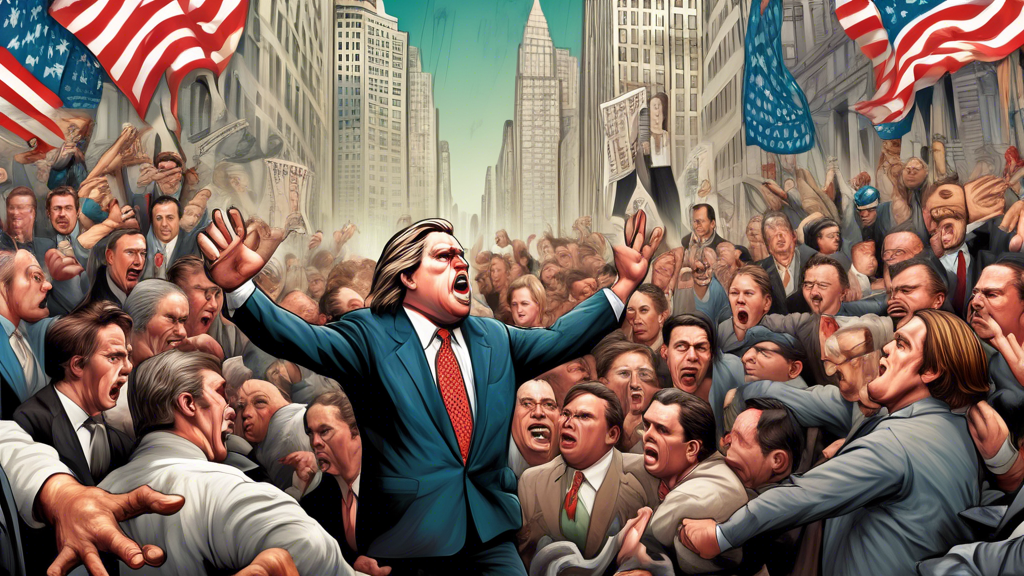
Did Bannon Have a Point? The Populist Attack on Wall Street
As the political landscape in the United States continues to evolve, one figure remains at the forefront of populist discourse: Steve Bannon. Known for his staunch anti-establishment ideology, Bannon has consistently positioned himself against Wall Street, arguing that the financial elite are part of a corrupt system undermining the working class. His statements resonate even more as markets speculate on a potential Trump victory, raising questions about the effectiveness and implications of his populist messaging.
Populist Ideology and Bannon’s Role
Steve Bannon’s influence extends beyond his roles as a political strategist and co-founder of Breitbart News. He has emerged as a leading voice in promoting populist and nationalist ideals, often rallying against the perceived excesses of the establishment. Bannon argues that the interests of ordinary Americans have been sacrificed to benefit elites, especially in the financial sector. His populist narrative seeks to engage the disillusioned masses by offering a stark contrast to traditional political frameworks, particularly those aligned with Wall Street.
Anti-Wall Street Stance
Bannon’s critique of Wall Street is fervent and ongoing. He perceives the financial institutions as embodiments of the corrupt establishment that populist movements seek to dismantle. Bannon’s anti-Wall Street rhetoric is deeply intertwined with his broader goals of empowering the working class and rooting out elitism in American politics. He has positioned the financial industry not merely as an economic player but as a key adversary in the fight for economic justice.
Trump and Bannon’s Alliance
Central to Bannon’s influence is his alliance with Donald Trump. Bannon played a pivotal role in crafting the messaging that propelled Trump to the presidency, emphasizing themes of economic nationalism and a rejection of globalism. Through their partnership, Bannon sought to position Trump as the champion of the working class, framing his policies as a direct challenge to the status quo, including that of the financial elite.
Disruption and Change
Bannon’s strategy has been characterized by disruption, aimed at overturning existing political and economic orders. This disruptive philosophy was evident in Trump’s early executive orders, which often generated controversy and drew public scrutiny. By implementing such provocative measures, Bannon sought to galvanize support from those who felt marginalized and voiceless in conventional political discussions.
Economic and Political Messaging
At the heart of Bannon’s messaging is a vision of economic nationalism. His America First mantra critiques globalized capitalism, highlighting how it allegedly favors the wealthy at the expense of ordinary Americans. This perspective portrays the economic system as rigged against the working class, tapping into frustrations regarding job losses, wage stagnation, and the widening wealth gap.
Influence and Legacy
Despite facing legal challenges and accusations of spreading misinformation, Bannon’s voice remains influential within the Republican Party and the broader conservative movement. Through his War Room show and other platforms, he continues to mobilize activists and shape political discourse. His reputation as a strategist and ideologue is solidified by his ability to articulate the frustrations of a significant segment of the American populace who feel betrayed by the elite.
Future Political Landscape
Looking ahead, the future of populist movements in the U.S. may be deeply impacted by Bannon’s ideology. As the political environment shifts, there is potential for Bannon’s radical vision of conservatism to encompass a broader coalition against common adversaries. This unification of disparate conservative factions could signal a new chapter for the Republican Party, one that is inextricably linked to the populist sentiments Bannon and Trump have championed.
In conclusion, Bannon’s critiques and his ongoing campaign against Wall Street raise important questions about the current economic and political paradigm. As markets and voters gear up for another significant electoral season, the lingering impact of Bannon’s populist strategy will undoubtedly shape the conversation on economic justice and the role of elites in American society.
